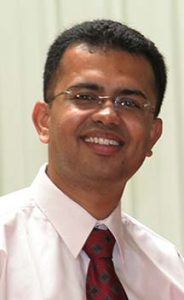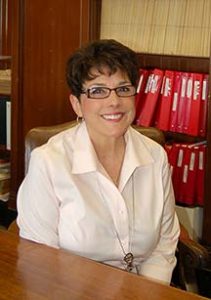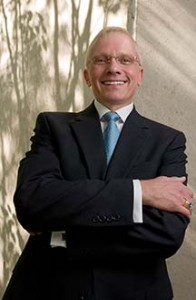
By RaeAnn Slaybaugh
3 students share their experiences — and what you can expect.

What factors were most important when you decided to pursue online continuing education?
Zerkowski: Most important was the integrity of the program. Second, an eminently respected institution of higher education was imperative. Third, relative convenience was key. The hybrid program was convenient.
Koshy: I didn’t want to leave my ministry context and family for a protracted period of time. I wanted to study in an institution that was Renewal-oriented and had courses that would help me in the area of spiritual formation. I searched for universities that were involved in online education and found that the School of Divinity at Regent was strong in the online delivery mode.
Thompson: Convenience and flexibility. I was a full-time (commuter) undergrad student at Rutgers in Camden. One thing that always held me back from pursuing an advanced degree was how to accomplish it at the end of the work day. It was like a gift from God to be able to pursue this opportunity, and to do it from any room in my home.
Did you have any misgivings about online education?
Zerkowski: No; we built an amazingly tight community of learners / professionals via distance learning modes. Instructors became mentors, confidants and colleagues. Initial questions regarding how interaction and relationship-building would be accomplished faded quickly.
Koshy: No; I was keen to continue ministering in my context (while studying).

Thompson: Sure, I panicked the first time I logged into the classroom. Would I be able to hear the professor and other members of my cohort? Would they be able to hear me? Would I sound ridiculous on the microphone?
I think many of my fears revolved around not being able to get back into the study mode. I was one month shy of my 50th birthday when I started the Masters in Church Management program at Villanova. I had been out of school for 28 years! I was concerned about my ability to comprehend and retain.
Also, as a person who reacts to facial responses, the inability to see what others were thinking, or how they were reacting, was an unnerving experience at first. But, once we got through the first week of class, it became very easy to imagine what was happening on the other end of that microphone.
Can online courses truly be as beneficial and engaging as on-campus classes?
Zerkowski: I found online education to be every bit as effective as any in-person format. I think online learning provided benefits that in-person learning doesn’t — the capacity to set a specific time in a professional schedule to learn, without interruption, and the capacity to interact with a far more diverse group of learners and faculty.

The capacity for a far more diverse range of learners and faculty is one of the most beneficial aspects of online delivery. We had learners in Europe Hong Kong and throughout the U.S. interacting on a daily basis and sharing insights and experiences.
The faculty was equally diverse; we enjoyed the benefit of those immersed in law and diocesan planning, as well as those immersed in academia at Villanova. The capacity to garner such a wealth of experience in facilitators was made possible by the “miracle” of technology.
Koshy: Sure! I’ve already completed two semesters of the course work for my D. Min. program using the online mode and have found it to be extremely beneficial. Three out of the four courses I’ve taken so far have been online. The other course was hybrid, including a week of a modular residency; but, the bulk of the course work was done online from Bangalore.
The way the courses were designed and facilitated, I was able to connect with fellow cohort members and glean from their experiences. We interacted with each other by engaging and responding to blogs written by other members of the cohort. We also used a closed group on Facebook and built an online community of learners.
Thompson: I do. I firmly believe that any course can be taught in an online setting. There needs to be a serious and dedicated commitment by the student, as well as the professor, to ensure that expectations are clearly defined and met on both sides of the equation.
Given the chance, I would jump at the opportunity to do this all over again.



Excellent information. I really enjoyed reading this post. Feedback is extremely important for further improvements in teaching or any kind of other services. Thanks for sharing this information.
Great article. I really admire your writing skills. Thanks for uploading this wonderful blog post. Stay blessed